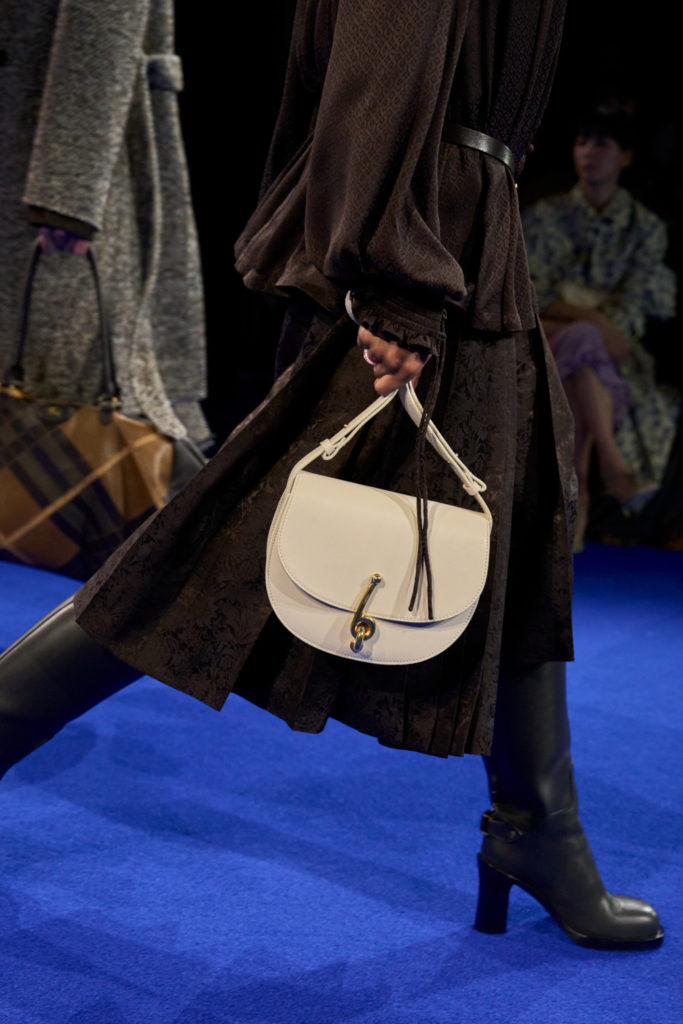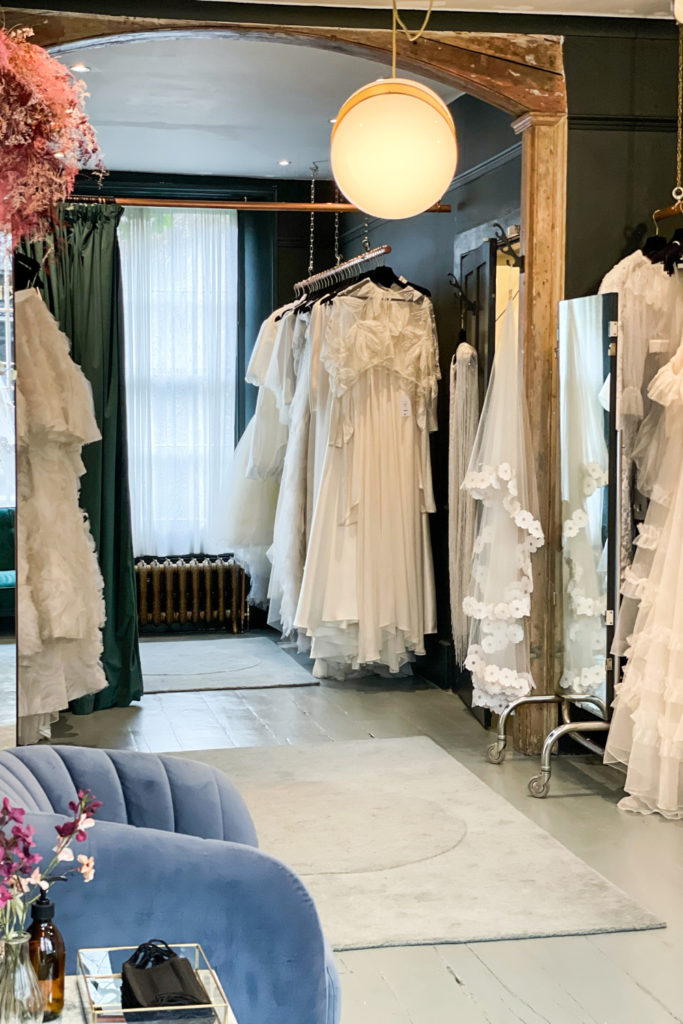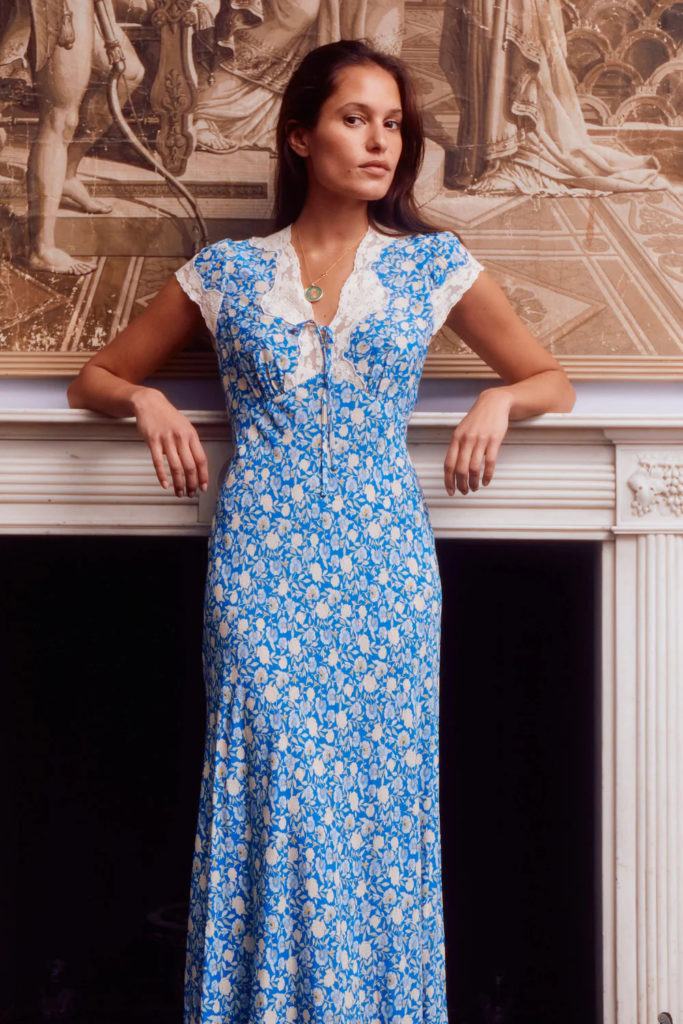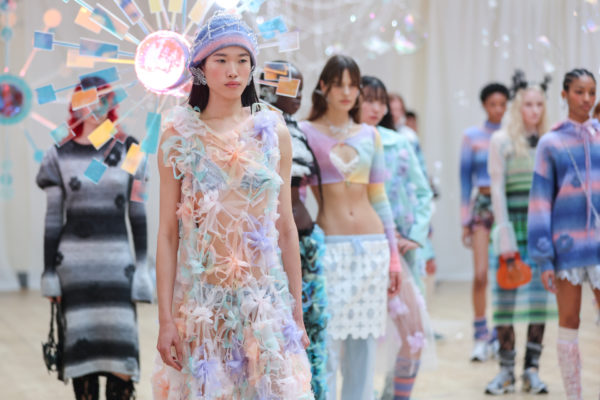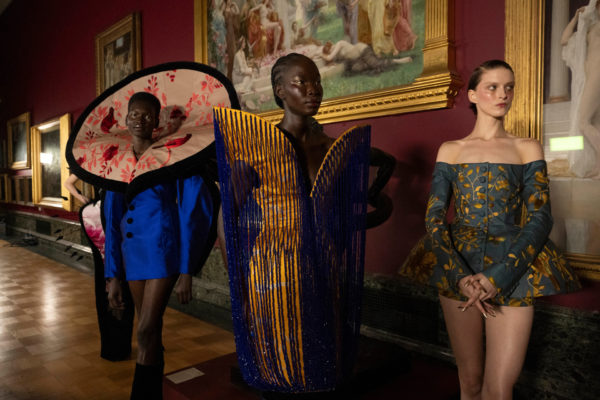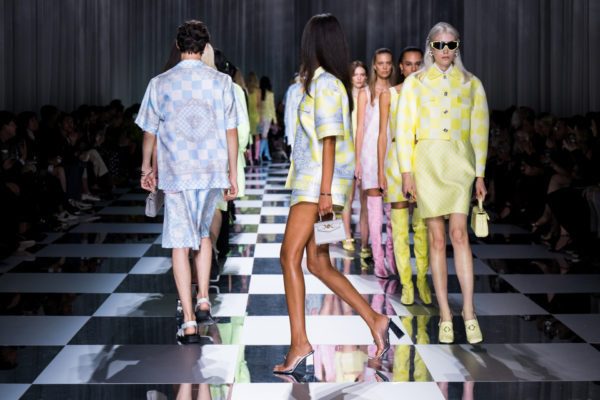Designer Tolu Coker On Her London Fashion Week AW24 Highlights
By
1 year ago
We look back on Tolu Coker's LFW show
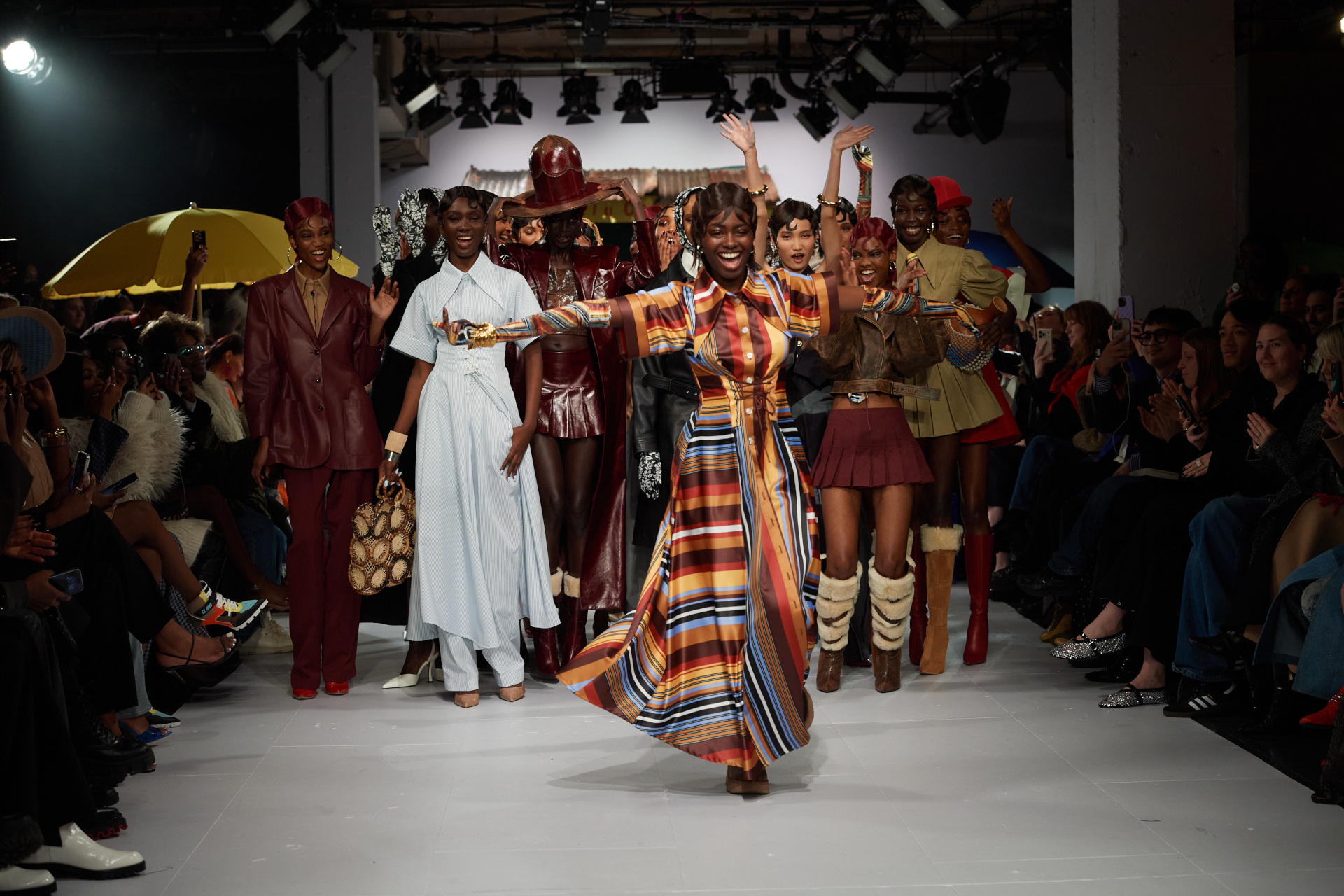
Since her graduation from Central Saint Martins in 2018, Tolu Coker has amassed a cult following as well as a coveted spot on the London Fashion Week schedule. The designer, whose work celebrates craftsmanship, community and empathy, has had quite the AW24 presentation season so far; Coker presented her sophomore LFW collection as part of NEWGEN, the British Fashion Council’s emerging talent network, and took part in 1664 Blanc‘s ‘Explorations In Blue’ pop-up at Selfridges.
To celebrate London Fashion Week’s 40th anniversary, 1664 Blanc, the Principal Partner of LFW, teamed up with Selfridges London to offer exclusive talks with NEWGEN designers Tolu Coker, Aaron Esh and Saul Nash as part of a curated fashion program in the department store’s cinema. The program also included exclusive panel talks with industry insiders, workshops with London’s best stylists and trend forecasting with the season’s most trusted tastemakers. As part of her involvement, Coker showcased an edit of her full catwalk show and took part in an interview with fashion editor Cobbie Yates, who asked the designer about her inspiration behind her collection and her creative process.
Still on the high of Fashion Week (and now getting ready for market season), we talked to Tolu Coker to find out more about her work, the inspirations behind her AW24 collection and why it’s important to read up on designers and their presentations after the show.
See More London Fashion Week AW24 Highlights Here
LFW Spotlight On: Tolu Coker AW24
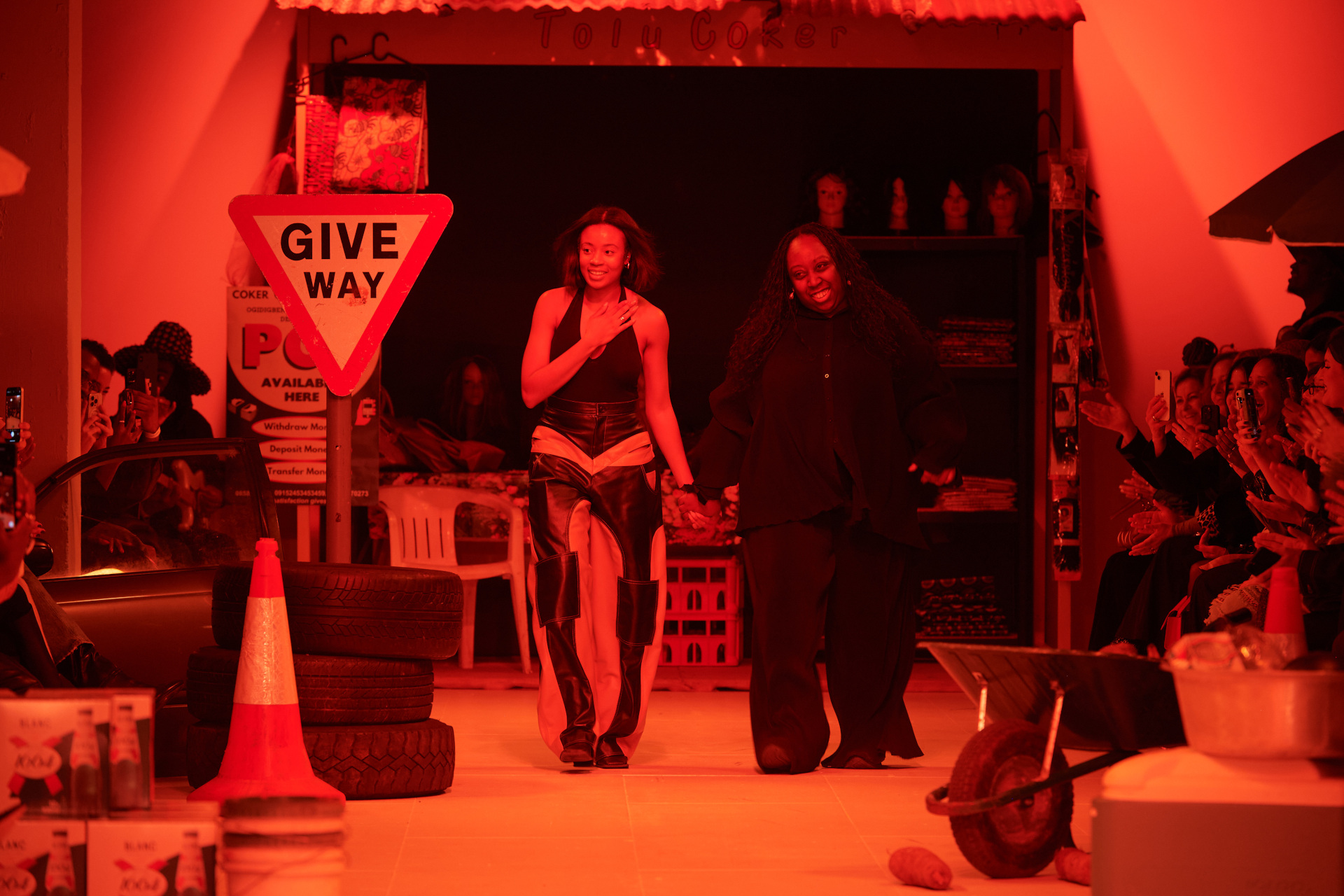
Tolu Coker (left) after her AW24 runway show
Hi Tolu, how’s life going right now?
Life is good, life is great. I am in recovery mode, post-show, and also preparing for market season and working on production.
For those unfamiliar, can you please tell us a bit about yourself?
I am a British Nigerian fashion designer and multidisciplinary artist. I am based out of London and I’m a lover of permaculture and the environment and clothing as a form of storytelling.
How would you describe your brand?
My main pillars are community, craftsmanship and clothes. My brand is all about people, it’s all about community, it’s all about the documentation of stories.
It’s also clothing, not just as a commercial commodity, but the way in which it preserves culture, the way it can be used as a tool for social change, especially social sustainability. So that’s looking at the stories that haven’t been commonly highlighted or documented throughout history of different communities.
It’s spotlighting different things happening across our world in this moment in time and past events and also anticipating future events. It’s about bringing back craft and looking at fashion as a creative practice as much as it is an industry, which is commercial.
And also using fashion as a tool for education, especially in communities where there is a history and there is a culture of craft, which often is getting lost in this day and age.
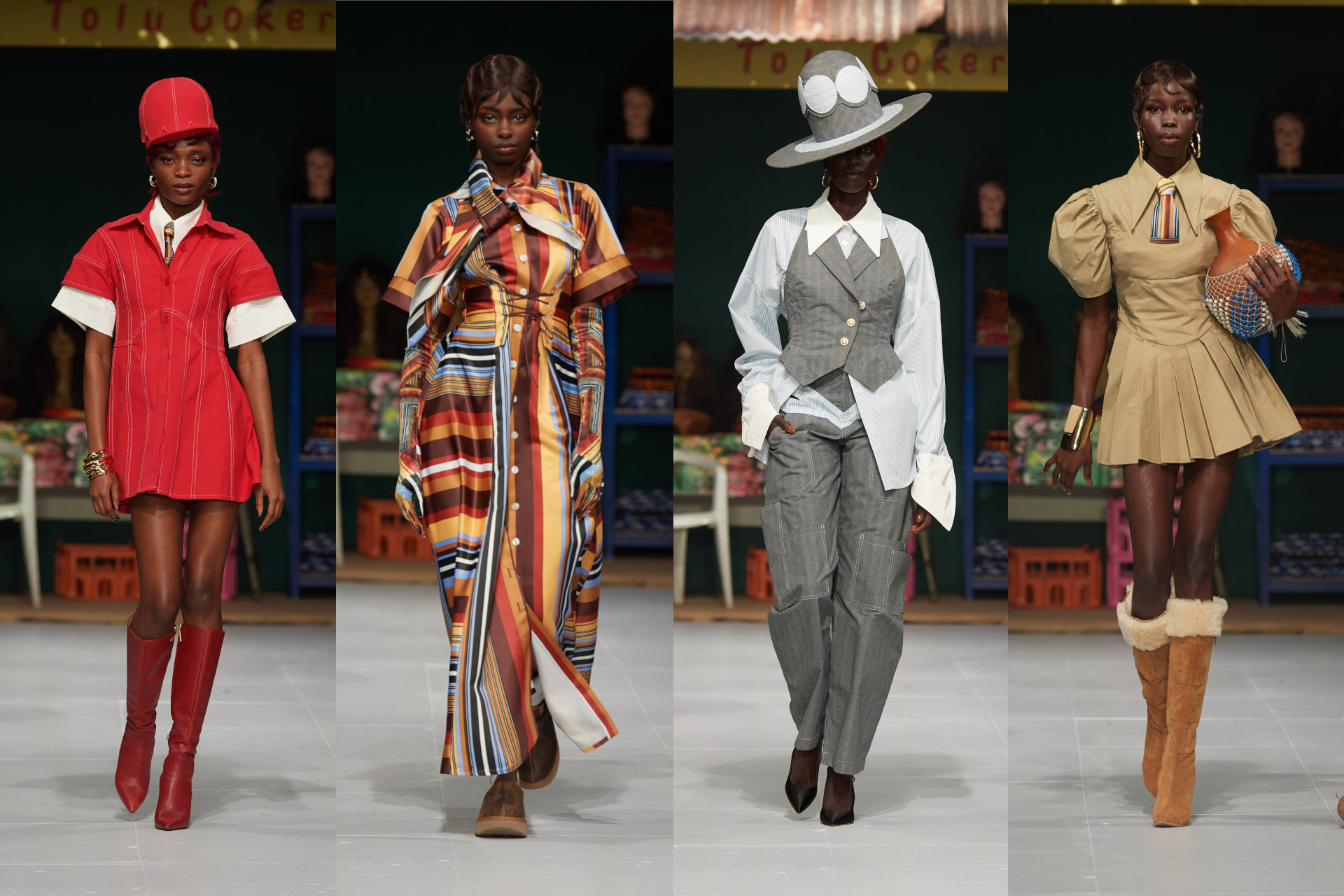
Tolu Coker AW24
What do you love the most about this time of year, during London Fashion Week?
I really love the opportunity to be able to reflect. It’s still quite fast paced because even though the show and Fashion Week ends, you still very much have your market season, which I’m in the midst of, plus production as well.
I love being able to reflect, I love being able to see the different ways in which people have received the work that I’ve put out into the world. It’s very much like each time having a birth of something and bringing it into the world, and now it’s for everyone to share, it’s everyone’s broken English.
I think definitely a time of reflection, a time of taking stock and really planning for what’s next, how do I continue to tell that story, who do I continue to tell that story with, where I want to research, where I want to explore, different communities that I want to connect with.
So it’s a great time for restocking, I would say.
Tell us about some of the inspirations behind your AW24 collection.
The main inspiration was really looking at hawkers [street vendors], but through the lens of how the global South may perceive the West. I think one of the things that we often have is narratives of how we perceive the global South, how we perceive equity, how we perceive sustainability, how we perceive even suffering and solutions to suffering. I think it’s really privileged to have a monopoly on those narratives. And for me, it was a very vulnerable and humbling process to really highlight and spotlight the stories of people who live in the global South, work in the global South, and are quite literally finding problems, solutions to problems that they didn’t create but that they inherited.
Broken English was also very much a conversation about global equity and just the way in which Western waste is dumped on Africa’s shores and even in South Asia, and how hawkers have created solutions to this. They don’t have gainful employment. Hawking is not gainful employment. It’s a means of survival. I wanted to be able to spotlight the issue in a way that also gave dignity to people who have to hawk. Many of them are very educated. Many of them are graduates who just simply don’t have employment back home. I feel a real sense of responsibility as someone who is of the African diaspora but has been born and brought up in the West, which is a very privileged position in many ways. I wanted to use Fashion Week as a microphone and a platform to highlight that.
What are your highlights from the collection?
I will say some of my highlights from the collection are definitely the leather pieces. Leather is new for me and my practice – and in the industry, it’s had a really pretty bad rep. How do I make something out of this waste? Also, what is the relationship to people in the global South with leather? That was a material that I saw really commonly, and it quite stuck out to me because of the warm climate in Ghana, which is where I had my most recent research trip, and just how much leather was a commodity in clothing and how much it had been repurposed and reused and reimagined. I really incorporated it within the tailoring this season, as well as within a shoe collaboration that I did specifically for the show with UGG.
Using a variety of sources and fabrics has been really interesting too, particularly seeing the boldness of 1664 Blanc at Selfridges and the multimedia and functional window has inspired me for what comes next.
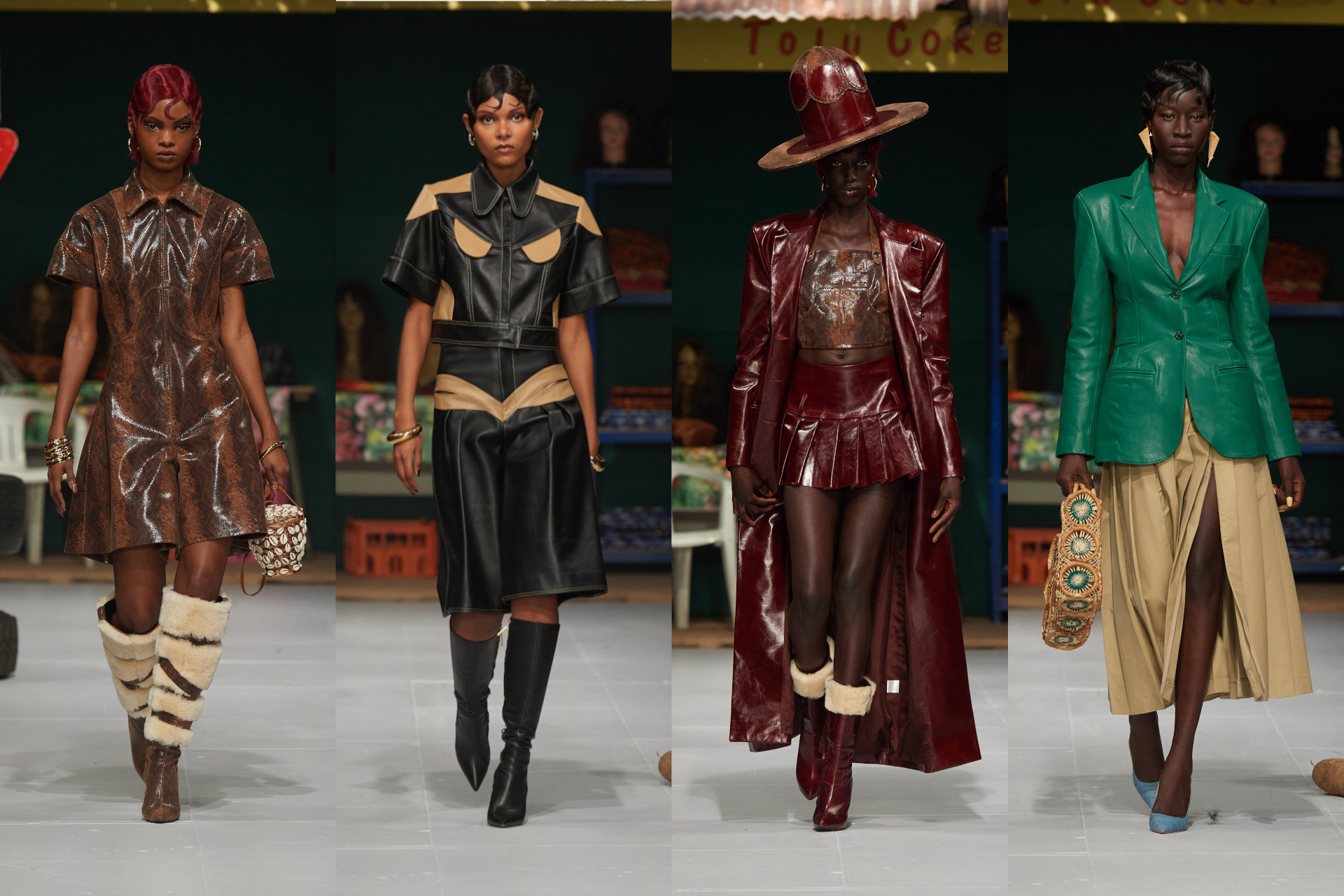
Tolu Coker AW24
How does your AW24 collection evolve or differ from your previous collections?
Deeper research into my practice and evolution into my practice of material futures – for example, the introduction of leather. I’ve always kind of had elements of repurposed leather within my collection, but it was a much wider scope.
There was also the banana leaf woven bags, which were done with artisans in Ghana – we were able to highlight some of the craft and sustainability and innovation that happens across the continent of Africa. This collection was just entirely womenswear too, and I really wanted to hone in and think about that, not just in the commercial aspect about really mastering women’s wear as a category or product range and my consideration of the female body, but the consideration of how I tell the stories of women. I think within every society where race, class and gender, there is intersection with women, specifically Black women and women from across the global South. Their stories tend to be those that are most subjected; I really wanted to be able to spotlight that in an even heavier light.
Your work often revolves around themes that span the merging of technology and craftsmanship as well as current social issues – how do these things intersect for you? Are they things you explore in your AW24 collection?
It’s funny, because my collections are simply an output of a wider body of work and research and practice that I do. These things always intersect when I think about my positionality as someone who was born in the 90s, and grew up during the 90s and noughties in the UK. I am a kid who has seen the age of technology. We went from floppy disks to Walkmans to the internet and contactless. Technology is always a part of my practice in terms of innovation. Because of my Yoruba roots, my ancestry is really heavily into craft-based practices and artisanal practices. That is always present and will always inherently be present in my work.
I think the intersectionality of where social issues apply is that I navigate the world as a Black British African woman. There is perspective there of how different people and different communities are affected by world issues. It’s just always something that’s inherent. It’s ever-present to me.
First and foremost, I always say before I’m an artist or designer that I’m a human. That’s what I always want to use my voice to be able to highlight.
What’s next for you in 2024?
Continuing to grow, continuing to develop, considering the brand not just where it exists here in the UK, but our global community and what that means for my brand and my business globally. And thinking about growth, but not necessarily overnight growth, just steady, consistent and sustainable growth.
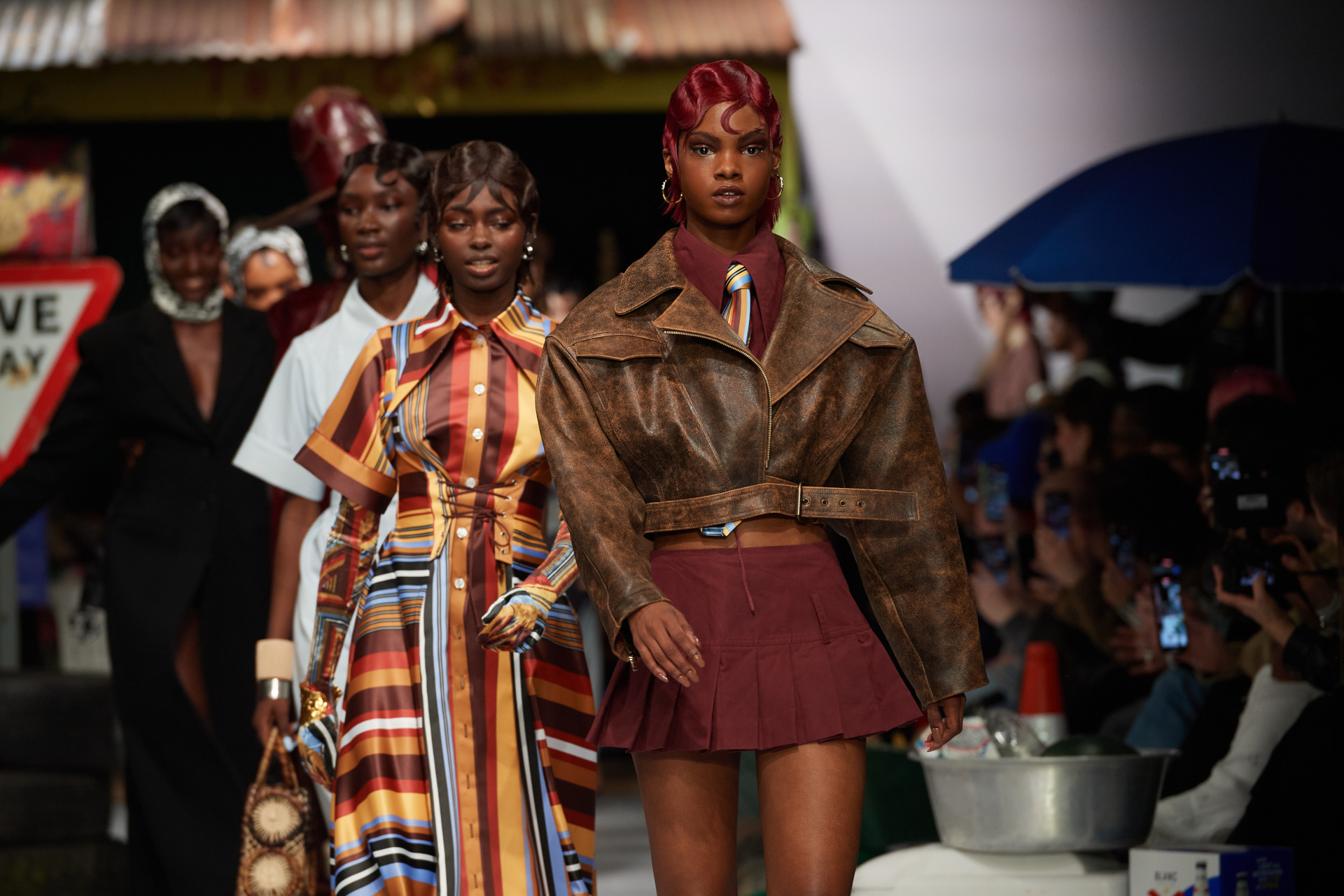
Tolu Coker AW24
How do you live a life in balance?
Truthfully, I don’t! That’s something that I’m trying to be much more intentional with. Being a young designer and trying to work in a way that sometimes does go against the grain of an industry I’ve sort of inherited, along with many of my other peers, is a lot of work and you wear many hats. I’ve been a one woman band for a very long time. But I also have a really incredible community who band together to support me when I need them. Trying to find that balance is the journey I’m on. So I don’t know if I can advise anyone on balance just yet. I’m figuring it out.
And any parting words for our readers?
I would definitely encourage people to have a look at the further reading around the collections. Fashion Week is obviously an incredible moment to celebrate the craft of fashion and Britain’s emerging and established businesses. It’s also an opportunity, especially with where our world is today, to look outside of just our perspective and our bubble. It’s not just a labour of love from me. It’s real people’s stories and I really encourage people to just look deeper into that. I am going to be publishing some further reading and information on my website so people can really delve deeper into the communities and the issues that I raise because they’re not just there for a great fashion moment; the fashion moment is there to raise visibility to these things.
EXPLORE
You can keep up with Tolu Coker and her work at tolucoker.uk
You can find out more about 1664 Blanc at @1664ukblanc
Images taken from Tolu Coker AW24 show at London Fashion Week

